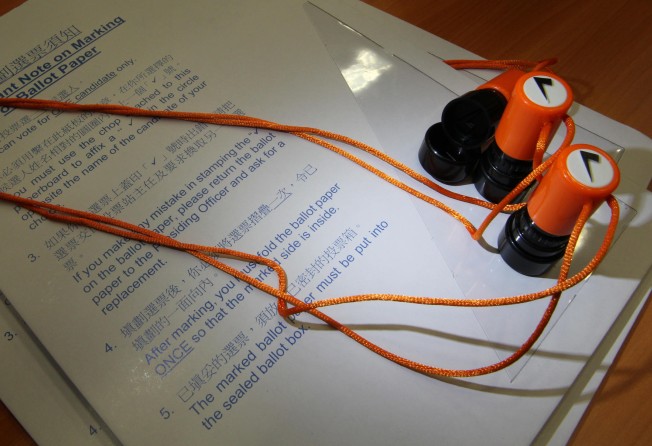A voter need not update address
Court hears no law broken when registered addresses of 16 people who cast ballots in Sai Wan constituency had been torn down

Voters who move home are not required to register at their new address to cast ballots, meaning the place they are registered at could have been demolished, the High Court heard yesterday.
A district councillor who won his constituency also said commercial shops could be valid residential addresses, as some people lived in upper areas, with the mezzanine units as the place of business.
The situation is legal provided the voters genuinely lived at the addresses at the time they registered, the court was told during the hearing of an election petition by a defeated district council candidate.
Winfield Chong Wing-fai of the Democratic Party is challenging the result of the poll in the Sai Wan constituency of Central and Western District, which he lost two years ago by 24 votes to Cheung Kwok-kwan of the Democratic Alliance for the Betterment and Progress of Hong Kong.
He filed the petition after he found that the registered addresses of 173 voters did not appear to be residential units.
The court heard that only 41 of the 173 actually voted. Of these, 16 were registered as living in a building now torn down and most of the others in ground-floor shops.
The Independent Commission Against Corruption investigated after Chong complained but it concluded there was no case to pursue, the court was told.
This prompted Mr Justice Johnson Lam Man-hon to ask government lawyers why there was no sanction on voters who did not update their addresses when they moved.
Barrister Anthony Chan, for the government, said the government wanted to encourage people to register and did not want to create inconvenience by requiring electors to update their addresses.
But Martin Lee Chu-ming SC, for Chong, said they would not accept the ICAC investigation's finding.
"It is difficult to believe people would use those premises as their residential premises," he said, referring to those whose registered address appeared to be a ground-floor shop.
He also said it should be the government's philosophy that voters cast a ballot in the district where they actually lived.
Ernest Koo Chak-ming, for Cheung, said people could live in the cockloft of a ground-floor shop because mezzanine units could be used for commercial or residential purposes.
"Some electors moved out, some chose to live in shops. That does not affect the integrity and fairness of the election," Koo said.
Lam will hand down a written judgment later.